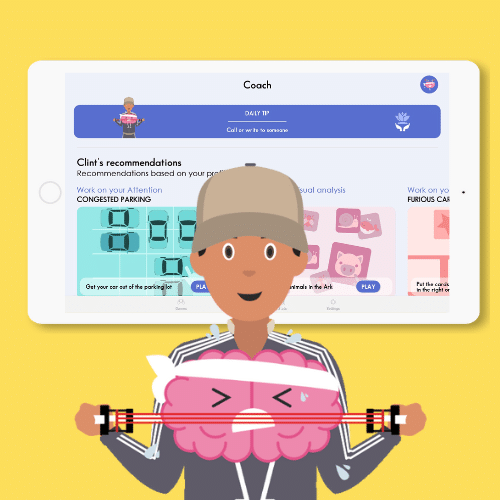Depression is a common mental illness that can have serious consequences on a person’s life. Symptoms of depression include persistent sad or anxious mood, loss of interest in activities previously enjoyed, persistent fatigue, sleep disturbances, appetite disturbances, feelings of hopelessness and worthlessness, suicidal thoughts and other symptoms.
Depression and mental health
Depression is a mental illness that can have serious consequences for a person’s mental health. It can affect the way we think, feel and act, and can make daily life difficult. People with depression may experience feelings of isolation, hopelessness and sadness, which can affect their ability to function normally. Depression can also affect a person’s quality of life by reducing their ability to enjoy the activities they love and to maintain healthy social relationships. It is important that people with depression seek professional help to treat the illness and improve their mental health. Treatment may include medication, therapy and lifestyle changes to help manage symptoms and improve quality of life.
Depression is one of the most common mental health problems worldwide, affecting millions of people of all ages, cultures and walks of life. Depression is a complex illness that can be triggered by a variety of factors, including stress, trauma, negative life events, physical health problems and genetic and hormonal factors. Depression is an illness that affects not only an individual’s mood and emotions, but also their overall mental and physical health. Symptoms of depression can vary from person to person, but generally include persistent depressed mood, loss of interest in usual activities, chronic fatigue, weight loss or gain, sleep disturbance, decreased concentration and suicidal thoughts.
Help for depression
Depression is an illness that can be difficult to manage for those who suffer from it. Fortunately, there are many supports available to help people with depression overcome their illness. Therapy is one of the most common aids for depression. Therapy can take many forms, including cognitive behavioral therapy (CBT), interpersonal therapy, and acceptance and commitment therapy. Each of these forms of therapy focuses on helping patients understand their negative thoughts and emotions and learn skills to better manage them.
Medication is another help for depression. Antidepressants are often prescribed to treat depression. There are several types of antidepressants, each with specific benefits and side effects. Patients should discuss treatment options and potential side effects with their physician. Lifestyle changes can also be helpful in treating depression. Patients can try to exercise regularly, eat a healthy, balanced diet, get enough sleep and participate in activities they enjoy. These changes can help patients feel better about their bodies and minds.

Support groups are another help for depression. Support groups allow patients to share their experience of depression with others who understand their illness. Support groups can help patients feel less alone and get advice from people with similar experiences. It is important to note that depression is a real illness that requires professional treatment. Patients with depression cannot simply “shake off” or “feel better” by changing their attitude or behavior. Patients should seek help from qualified and competent mental health professionals. So, there are many aids available to help people with depression. Patients should discuss treatment options and available supports with their physician to find the treatment plan that is best for them. With proper treatment and support, patients can overcome their depression and regain their health and well-being.
How does depression affect our cognitive functions?
Depression can have a significant impact on our cognitive functions, affecting the way we think, remember and make decisions. People with depression may have difficulty concentrating or paying attention, making decisions or solving problems. They may also have difficulty remembering information, even recently learned information. Depression can also affect the speed of information processing, making it more difficult to process information quickly or efficiently. These cognitive difficulties can have a significant impact on the daily and professional lives of people with depression, affecting their ability to perform tasks and maintain interpersonal relationships. Treatment for depression can help improve these cognitive functions, allowing for better concentration, memory, and faster, more accurate decision-making.
Cognitive training as a solution to depression
Cognitive training is often done through games and exercises that stimulate different cognitive functions. These games can be played in person or online, and can be tailored to the individual needs of each patient. The results of cognitive training can be significant, with improvements observed in memory, attention and problem solving, which can help patients better manage their depression. It can be used in conjunction with other therapies, such as cognitive behavioral therapy (CBT) or pharmacological therapy, to improve treatment outcomes for depression.

It is an effective method to help people with depression strengthen their cognitive skills and better manage their illness. By combining this method with other forms of therapy, it is possible to achieve even more positive results in the treatment of depression. It is important to emphasize that cognitive training should not be considered a replacement for therapy or medication, but rather a complement to comprehensive, individualized treatment.
Tablet games for two to keep relationships
In a technology-driven society, it can be difficult to maintain meaningful personal relationships. However, playing tablet games together can be a way to keep relationships strong and lasting. The two-person tablet games can be downloaded to portable devices such as tablets and phones, allowing users to play together no matter where they are. Games such as puzzles, strategy games, card games and trivia games can be downloaded and played together, which can enhance communication, healthy competitiveness and shared interests.
Tablet games for two can also be beneficial for long-distance relationships, as they offer an interactive way to stay connected, share fun times and strengthen emotional bonds. People can even organize regular tournaments or game nights to strengthen their relationship and emotional connection. In addition, tablet games for two can also be beneficial for couples looking to improve their communication or work on relationship issues. Games can be used as a platform to address sensitive topics or to encourage honest and open communication.
Brain training programs
There are many ways to exercise your memory and cognitive functions. Daily practice of brain exercises reduces the risk of neurological disorders, as some programs act on all cognitive functions.
The JOE Brain Training program was designed specifically for adults to keep the brain healthy through fun and challenging brain exercises. It has over 30 cognitive games and targets concentration, focus, reflexes, language and many other cognitive functions.

However, it’s important to remember that tablet games for two should not be the only form of communication or recreation in a relationship. Meaningful personal relationships require face-to-face interaction and open, honest communication. Tablet games for two can be a fun and interactive way to maintain healthy relationships, but it’s important to think of them as a complement to in-person interactions rather than a replacement.
In summary, depression is one of the most common mental health problems worldwide, affecting millions of people of all ages, cultures and walks of life.
Depression is a complex illness that can be triggered by a variety of factors, including stress, trauma, negative life events, physical health problems and genetic and hormonal factors. It is an illness that affects not only the individual’s mood and emotions, but also their overall mental and physical health. It is therefore important to find the most suitable solutions for each individual.
Other articles that might interest you:
How Parents Can Contribute to Teacher Training
As we delve into the realm of education, it becomes increasingly clear that teacher training is not merely a...
Differentiated Instruction Approaches: Training and Practical Application
Differentiated instruction is a pedagogical approach that recognizes the diverse needs of students in a classroom. It...
Key Skills Teachers Need to Support Students with Special Needs
As we embark on our journey to support children with special needs, it is essential for us to cultivate a deep...










